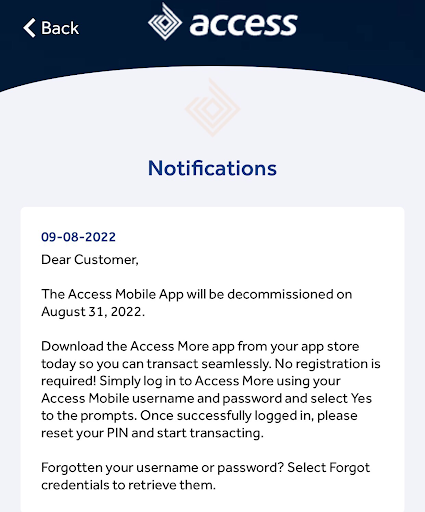Getting Started With Content Writing From Home

Scrolling through my Twitter timeline like I often do, I stumbled upon a question that made me pause “How do I start content writing?” The tweet had hundreds of likes and various people commented about their uncertainty as well.
I had believed that there were lots of resources available both offline and online that answered the above question, but alas, people are still confused and unsure about how and where to start.
So, I’m here to hold your hands, one beginner to another as we navigate the world of content writing.
WHAT IS CONTENT WRITING?
Content writing takes various forms. If you are an avid social media user, you’ve likely come across various handles with “content writer” boldly written in their bio. If you take the time to go through each of their pages, you’d realize that their writing forms are different.
Some write social media copies, some write speeches, and others write advertisement scripts for various brands.
Some write long-form blog articles, others write podcast and video scripts, and some are SAAS writers, technical writers, etc.
Don’t get confused. They’re all content writers (in fact, what I’m doing now is content writing)

So what exactly is content writing?
Content writing is the process of writing, reviewing, and disseminating written content to a digital audience on different digital platforms.
Content writing is a subset of digital marketing. It involves the ability to use words to instruct, educate, and propel a target audience to action.
What separates content writing from other older forms of writing is that content writing is usually shared on digital platforms(blogs, social media, websites, online magazines, etc).
As a content writer, you have the unique task of crafting a brand online voice/communication. In the same way, graphic designers are in charge of brand identity and brand recognition, a content writer is in charge of crafting brand communication.
Whatever communication you intend to pass across must be in the language that your intended target audience can understand. It must convey meaningful messages which inspire your audience to take an action.

Take this message from Access bank for an example, they are aware that the majority of the audience who use their mobile app is
- Learned, and understand English
- Have a smartphone and understand the technicalities involved in using a smartphone.
- Can easily reinstall the new mobile app.
Armed with this knowledge, their content writing team crafted a simple notification with a call to action at a specific date.
GETTING STARTED WITH CONTENT WRITING
There are guidelines you have to follow in order to get started with content writing and those guidelines will help you excel in it as well.
Here are a few of them;
#1. Pick A Niche: We’re starting right off with the key aspect of content writing; picking a niche. You can’t be a good content writer without narrowing down your field. It is compulsory for you to choose a niche and grow from there.
Don’t get confused by the word niche, it simply means area, fields, forms, and types of content writing. There’s love and relationships, fashion, sports, real estate, tech, crypto, etc. The list is endless and exhaustive. So before starting your content writing career, ensure that you’ve mapped out the niche you want to specialize in.
It is important that you pick a niche because it’ll help you navigate the world of content writing easier and faster. You certainly don’t want to be that content writer who is everywhere and writes about everything in every topic and niche.

#2. Research: To excel in content writing, you must embrace, love, and find comfort in the bosom of research. You can’t hide from it, you can’t wish it away and you certainly cannot run from it.
First, research will help you discover the niche you should channel your energy.
- Conduct proper research of various niches,
- follow and connect with experts in the desired niche,
- Study what and how they write and structure yours(it’s imperative that you create your voice and unique writing style from the get-go)
Secondly, in the process of your research, ensure you verify every statistic you intend to put on your write-up. This is particularly important for those whose niches are going to be financial, medical, crypto, and sports ( essentially the technical niches). Ensure you get your materials from verified and trusted experts in each niche. And research is the only way you can figure out who those experts are.
Thirdly, as you progress, research will be the umbrella that will shade you from writer’s block. Because, once you’ve conducted thorough research, the materials you need to develop your content are ready and organized, so you won’t be grasping at straws when it’s time to write.
The best thing is to remember that Google is your best friend, so utilize it in your research journey. Move from blog to blog, from link to link as you search for answers to what you’re tasked with doing. And when you have got the materials you need to develop your content, make sure you don’t plagiarize another’s content. Write your unique content in your words.

#3. Practice: Practice indeed makes perfect. Now you know the niche you will focus on, the next step in your journey should be where to showcase your writing skills. And blogging is the perfect place to start.
There are lots of sites you can use to start blogging easily without having to buy a domain or hosting plan. Blogger, Substack, and Medium, to mention a few are great sites to start off with.
You can start your niche blog where you show off well-researched topics and also have a personal blog devoid of any rules, where you simply let your creativity shine. The personal blog could serve as a place you go to unwind from all the technicalities that the niche blog will serve up.
There are no rules when it comes to a personal blog. Whatever catches your fancy and you believe you have a wealth of knowledge about, go right ahead and start blogging about it. For example, I’m a tech writer but I run a blog where I let loose my storytelling skills.
Remember, the goal is to test and show off your writing skills and subsequently monitor your progress. You can always monetize your blog
#4. Learn Basic SEO: SEO knowledge will come in handy especially if you go through the blogging route. It’ll help you understand how to conduct proper keyword research, how to generate new content ideas in any niche(fashion, sports, real estate, Crypto, etc), and most importantly gain free traffic to your site.
When you understand SEO basics, you can offer SEO writing as a service to other bloggers and website owners. Hubspot, Semrush, and Udemy should be your focal learning sites.
#5. Learn to Show Your Work: As a content writer, you can use various social media platforms to grow and show off your writing skills. Platforms like Instagram, Twitter, and Linkedin are good starting points.
A little digital marketing won’t hurt. Social media will allow you to flex your writing skills and also attract the required social validation and showcase the length at which people are consuming and engaging with your content. You can use this social proof to land future gigs.
Hauwa on Twitter is a perfect example of how you can use social media to your advantage. She writes the funniest stories. Check her out, you’ll learn a thing or two.

#6. Volunteer/Internship: Don’t be afraid to seek out internship opportunities. Email companies or reach out to individuals you believe can create or have viable information about internship opportunities.
Fortunately, lots of opportunities are remote, you might end up volunteering or interning from the comfort of your home. You’ll know exactly what works for you. Get ready to grab any opportunity as it presents itself.
#7. Write Daily: Now you know how to write, and you don’t shiver anymore when you have to create content, Kudos!!. The next goal which is the most important is to keep writing.
Write every day. This goes without saying, when you write daily, you get exponentially better at it. If you’re unsure or think you’re simply scribbling, that’s good too.
Scribble that content on your Linkedin profile, and utilize the Linkedin article section to write long-form content. Your task should be to write daily and constantly and to have platforms where you can post them and get constructive criticism.
No matter how good you believe you’ve gotten, don’t go a day without penning down some words. If you’re looking for inspiration, join any writing challenges.
#8. Monetize Your Skills: Get on a freelance platform NOW!!. As soon as you feel confident about your writing skills, take that new confidence straight to the bank and start profiting.
- What do you offer
- Who do you serve
- How do you do it
Answer the above questions and you’ll be able to craft an efficient profile.
Fiverr, Upwork, Contra, Truelancer, Problogger, and other freelancing sites offer good money for writing gigs. Get on one or more and build your profile and portfolio along the way.
#9. Portfolio: Content writing is one of the numerous stacks under tech and as we all know, tech is a highly “show me what you’ve done” field. And the best way to showcase your work as a content writer is by creating a portfolio.
Take a look at my portfolio to see the necessary areas and things you need to include in yours for a start. Your portfolio should include
- Your best works
- Updated contact information
- An email address
- Clear and easy navigation across its various pages.

The best tools you can use to create your portfolio are Google sites and Webflow because of their easy drag-and-drop features.
TIPS
Storytelling: Storytelling is an art that’ll set your work apart as a content writer. Use it efficiently in crafting your voice and writing style.
It’s always a great idea to integrate stories into articles, it makes them more relatable and human. When you use stories, ensure that they align with the general message of the article and connect them seamlessly. Get storytelling inspiration from here
Opening lines: Grab your audience’s attention from the get-go. It could be the beginning of an article or a story, your aim should be to lure them in to keep reading.
The opening lines and heading are the two most important factors of your article. Capture their interest from the beginning and they just might read to the end.
Outlining: Outlining your work will save you lots of time and energy when you’re ready to write. Do a mental map of the general ideas of your article and break them down into;
- General Heading: the universal heading will have subheadings
- Subheadings: each subheading will be broken down into paragraphs
- Paragraphs: each paragraph will contain a particular idea(s)
When you combine this with good research, you’ll write your articles without any hitch.
Editing: Don’t edit when you’re in your writing flow, it’ll only distract you. So write until you’ve your first draft and edit later.
When you come back to it again with fresh eyes, you’ll be able to see the areas you’ll keep or delete. Grammarly will help you with the grammatical structure and correctness of your sentences.
Use bullet points to separate your ideas and guide your readers. People don’t want to read challenging material. They seek out excellent writing that is easy to understand.

CONTENT WRITING TOOLS
You can kickstart your content writing career with your mobile phone, and an active internet connection. As you progress, a laptop will be a better option, as it’ll enable you to conduct research faster(you can have multiple tabs open at the same time)
There are a plethora of tools at your disposal that will enable you to stay focused, write better, and become an authority in whatever niche you pick.
A few examples of such tools;
| Name | Purpose |
| Google Docs | Writing |
| Grammarly | Editing |
| Quillbot | Paraphrasing, Plagiarism checker |
| Rytr | Content Generation |
| Canva | Design |
| Vistacreate | Design |
| Hubspot Blog Generator | Content Generation |
| Thesaurus | Writing |
| Unicheck | Plagiarism Checker |
| Draft | Outlining, writing |
CONCLUSION
“Become a content writer in 7 days”, and “How I made $2000 from content writing in 2 weeks” are examples of the numerous adverts you’ll see online. Each one promises to make you a millionaire in two easy steps. Don’t fall for that gimmick, rather focus on honing your skills, practice, build, network, and grow.
Remember, content writing is a tech stack and there’s ample room for growth and career progression. Define your niche, write articles under that niche, and put your best works in your portfolio.
When you’ve connected with content writers in your niche, ensure you ask relevant questions, contribute meaningfully to their posts, and share their works. The goal is to garner the respect of experts in your niche.
Author: Olivia Eneani
(Content creator and digital marketer, 07068308137)


